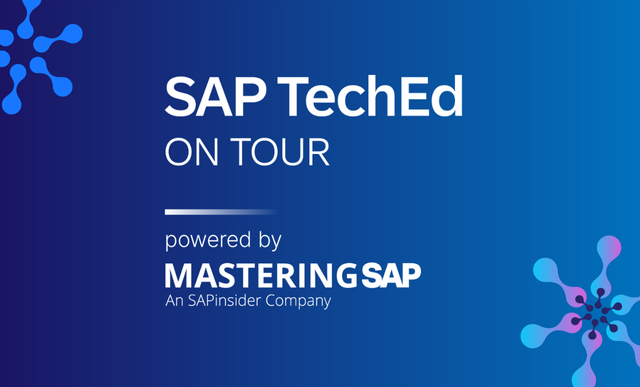SAP BRF
Filter By
Browse By
- SAP Analytics and AI
- SAP Application Development and Integration
- All SAP Application Development and Integration
- SAP ABAP
- SAP ABAP Development Tools
- SAP ABAP Test Cockpit
- SAP API Management
- SAP BAPI
- SAP Basis
- SAP BRF
- SAP Business Application Studio
- SAP CMS
- SAP Design Studio
- SAP Development Tools
- SAP DevOps
- SAP EAI
- SAP EDI
- SAP Extension Suite
- SAP Fiori
- SAP Fiori Elements
- SAP Integration Suite
- SAP Low Code Application Development
- SAP Low Code Automation
- SAP Netweaver
- SAP Release Management
- SAP UI5
- SAP Web Application Server
- SAP Web IDE
- SAP Business Process Management
- SAP Center of Excellence
- SAP CIO
- SAP Customer Experience
- SAP Data and Data Management
- All SAP Data and Data Management
- SAP BW
- SAP BW/4HANA
- SAP Crystal Reporting
- SAP Data Archiving
- SAP Data Center
- SAP Data Governance
- SAP Data Integration
- SAP Data Migration
- SAP Data Quality
- SAP Data Services
- SAP Data Strategy
- SAP Data Visualization
- SAP Data Warehouse Cloud
- SAP DMS
- SAP Document Control
- SAP EIM
- SAP ETL
- SAP ETL Tools
- SAP HANA
- SAP HANA Administration
- SAP HANA Deployment Infrastructure
- SAP HANA Studio
- SAP Master Data
- SAP Master Data Governance
- SAP MDM
- SAP Enterprise Architect
- SAP Enterprise Asset Management
- SAP ERP
- SAP Finance
- All SAP Finance
- SAP Accounting
- SAP AR AP
- SAP Asset Accounting
- SAP Billing Systems
- SAP BPC
- SAP BRIM
- SAP Cash Management
- SAP Central Finance
- SAP Controlling
- SAP COPA
- SAP Cost Center Accounting
- SAP e-invoicing
- SAP FICO
- SAP Finance Automation
- SAP Financial Closing Cockpit
- SAP Financial Consolidation
- SAP Financial Planning
- SAP FX Risk
- SAP General Ledger
- SAP Global Tax Management
- SAP Hyperion
- SAP Order to Cash
- SAP Payment Processing
- SAP Profitability Analysis
- SAP Rebate Management
- SAP S/4HANA Finance
- SAP Universal Journal
- SAP Governance Risk and Compliance
- SAP Human Capital Management
- SAP Intelligent Technologies
- SAP Platform and Technology
- All SAP Platform and Technology
- SAP Business Technology Platform
- SAP Cloud Connector
- SAP Cloud Integration Platform
- SAP Cloud Migration
- SAP Cloud Platform
- SAP Cloud Providers
- SAP Cloud Strategy
- SAP Container Platform
- SAP Digital Asset Management
- SAP Digital Integration Hub
- SAP Digital Signature
- SAP HANA Enterprise Cloud
- SAP HEC
- SAP Hyperscalers
- SAP Infrastructure
- SAP Messaging
- SAP Smart Forms
- SAP Quality and Testing
- SAP Security
- SAP Spend Management
- SAP Supply Chain Management
- All SAP Supply Chain Management
- SAP APO
- SAP Asset Management
- SAP Business Network
- SAP Digital Manufacturing Cloud
- SAP Digital Twin
- SAP EWM
- SAP IBP
- SAP Inventory Management
- SAP Label Printing
- SAP Logistics
- SAP Manufacturing
- SAP Manufacturing Automation
- SAP MES
- SAP MII
- SAP MM
- SAP MRO
- SAP MRP
- SAP Order Management
- SAP Plant Maintenance
- SAP PLM
- SAP Production Planning
- SAP S&OP
- SAP SD
- SAP SPM
- SAP Supply Chain Planning
- SAP Track and Trace
- SAP Transportation Management
- SAP System Administration
What is SAP Business Rule Framework (BRF)?
SAP Business Rule Framework (BRF) is an event-controlled runtime environment that processes certain rules. Users can assign any number of rules to an event. A rule consists of a Boolean expression and an action. If the expression returns the value TRUE, the system executes the action. BRF also contains a maintenance environment that enables users to edit and configure BRF objects. Users can configure both technically oriented and business process-oriented rules. They can configure the rules in the maintenance environment, and the system processes the rules in the runtime environment.
BRFplus is the successor to BRF and is part of the SAP NetWeaver ABAP server. It provides an API and user interface for defining and processing business rules without the need to write ABAP [PETER, PLEASE LINK TO SAP ABAP LANDING PAGE] code. Users can model rules intuitively and reuse these rules in different applications. The interface between a business rule modeled with BRFplus and an application using that rule is provided by a BRFplus function, which serves as a container for the entire business logic of a rule. Rules are implemented as expressions that are assigned to a function. The rule input is known as context, and the rule output is called result. Context and result consist of the following types of data objects: element, structure, and table.
What is SAP Business Rule Framework (BRF)?
SAP Business Rule Framework (BRF) is an event-controlled runtime environment that processes certain rules. Users can assign any number of rules to an event. A rule consists of a Boolean expression and an action. If the expression returns the value TRUE, the system executes the action. BRF also contains a maintenance environment that enables users to edit and configure BRF objects. Users can configure both technically oriented and business process-oriented rules. They can configure the rules in the maintenance environment, and the system processes the rules in the runtime environment.
BRFplus is the successor to BRF and is part of the SAP NetWeaver ABAP server. It provides an API and user interface for defining and processing business rules without the need to write ABAP [PETER, PLEASE LINK TO SAP ABAP LANDING PAGE] code. Users can model rules intuitively and reuse these rules in different applications. The interface between a business rule modeled with BRFplus and an application using that rule is provided by a BRFplus function, which serves as a container for the entire business logic of a rule. Rules are implemented as expressions that are assigned to a function. The rule input is known as context, and the rule output is called result. Context and result consist of the following types of data objects: element, structure, and table.
BRFplus use cases:
SAP Tax and Revenue Management
- Calculating rules for filling in and validating tax forms
- Tax registration, including creating business partners, contract objects, and billing documents
- Tax portals registration
SAP Governance, Risk, and Compliance
- In survey valuation plugin, BRFplus defines formulas to calculate all elements of analysis based on numbers (scores, amount, or percentages) coming from survey responses
- In key risk indicators, BRFplus is used to trigger email notifications and risk assessments
- In multi-stage multi-path workflow engine, workflow routing and agent determination rules can be implemented using BRFplus
SAP Grants Management for Grantor
- Assessment/eligibility determination of grant applications and claims to decide whether an applicant is eligible and for how much
- Real-time data validation during form entry
SAP Application Incident Management
- Auto-dispatching of incident reports based on available information
- Integration of customer relationship management to identify available teams
What vendors offer help with BRFplus implementation? Some of the vendors that offer BRFplus implementation help include Customer Advisory Group, Novigo, and Turnkey Consulting.
Further Resources for SAPinsiders
Simplify Release Strategy Decisions in Procurement with Business Rule Framework Plus (BRFplus)
Creating and deploying automated controls in SAP Process Control
5 results
-

A Step-by-Step Guide to Business Rules Framework Plus
Published: 26/November/2013
Reading time: 13 mins
Learn the essentials of the SAP Business Rules Framework Plus (BRFplus) rules. Discover how to work with the BRFplus tool, how to create a simulation for rules, and how to call a rule from an ABAP program. Key Concept The BRFplus tool provides a sophisticated user interface for creating functions that comprise a number of...…
-

Take Advantage of the Support for Multiple Rulesets in SAP Access Control 10
Published: 30/May/2013
Reading time: 11 mins
Learn how to use a business rule to influence the ruleset that is automatically applied to an access request based on defined attributes. Key Concept Request multiple ruleset is a functionality in SAP Access Control 10.0 that can be used to determine the appropriate ruleset to use in risk analysis based on defined conditions in...…
-

How to Set Up and Implement User Defaults in SAP Access Control 10.0
Published: 09/April/2013
Reading time: 14 mins
Learn how to configure user defaults functionality in SAP Access Control 10.0 to drive automatic assignment of values to user master data based on specific request attributes. Key Concept A user defaults business rule can be used to define the default entries automatically maintained for a user master record based on defined attributes and conditions...…
-
-

Configure SLAs for Firefighter Audit Log Workflow Review
Published: 29/March/2013
Reading time: 12 mins
It is important for organizations to act on requests when they are due, especially when working with a compliance tool such as SAP Access Control 10.0. See how to configure emergency access management service level agreements for the review of firefighter audit logs. Key Concept A service level agreement (SLA) is an agreed upon delivery...…
-

Understand and Extend SAP Access Control 10.0 Approval Workflow
Published: 27/November/2012
Reading time: 30 mins
SAP Access Control 10.0 uses a Multistage, Multipath (MSMP) workflow engine (an enhancement of SAP Business Workflow) to achieve a flexible configuration process for approval workflows needed for SAP Access Control business functionality. Because of the huge customer base of SAP Access Control, the MSMP workflow engine was developed to be robust and flexible to...…
Featured Experts
-

Akash Kumar
Associate General Manager, HCL
Become a Member
Unlimited access to thousands of resources for SAP-specific expertise that can only be found here.
Upcoming Events
-

SAP TechEd on Tour, powered by Mastering SAP
November 12 - 14, 2025
Sydney, New South Wales
Australia
View Event
Related Vendors
Your request has been successfully sent

